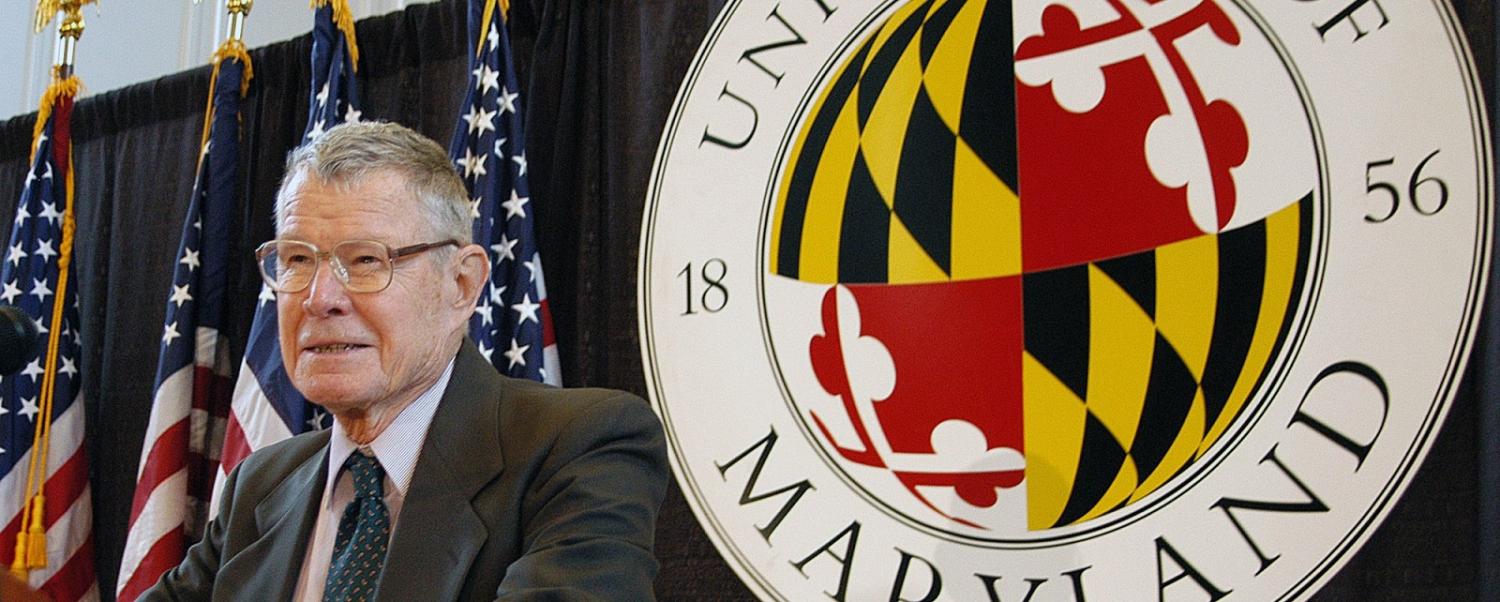The reader may have come across the view that strategy is a matter of connecting your resources (or means) with your objectives (or ends). Some applications of this temptingly simple interpretation take the instrumental logic a step further: the use of force is one of the tools in the toolbox of resources which can be selected from a series of other options (including diplomacy, economic statecraft, and information operations) to get a state where it wishes to go in its international relationships.
These understandings of strategy have their place. But they are a shadow compared to the much more lively and inspirational logic of Thomas Schelling, who has very recently passed away in his mid-nineties. Schelling’s insight was that strategy was not a matter of how State X got from A to B because of the way it arranged its resources to do things to State Y. Instead, what State X did and thought depended on its expectations of what State Y might do, and what the latter expected in turn from State X. As Schelling indicates in his most important book, strategy deals with ‘I think that you think that I think’ situations’ (a formulation that I find helpful in teasing members of my strategic studies class about the strange but wonderful subject they have embarked on).
This approach had particular resonance in the early Cold War years when Schelling was developing his distinctive brand of strategic logic. In an age of thermonuclear weapons, if the ‘I think that you think that I think’ series failed to converge around mutual expectations of stable and peaceful behaviour, catastrophe could result. If you had a hunch that I was tempted to launch a surprise nuclear attack because of what I feared you might do first, the consequences of this chain of misperception could be truly awful for us both. Victory was not about be imposing myself on you, (nobody gets to say ‘You’re Fired’ in this long-term employment contract). Winning consists of the mutual avoidance of annihilation. It means living to not fight the next day.
For Schelling that meant finding (or fashioning) clear limits or focal points around which our expectations and our behaviour could be stabilised. Hence the importance of traditions, precedents and other behaviour patterns which stood out from the social foreground. But this would only be possible if strategic actors were something other than pure adversaries lacking any interest in convergence, even for the sake of their mutual survival. It required their relationship to be a non-zero sum game and for them to recognise it as such. In Schelling’s view of strategy, competition was almost always mixed with cooperation. This meant that, whatever anyone else might think, strategic counterparts almost always had an interest in limiting their confrontations. Working out what stable limits involved also helped make Schelling one of the founders of modern thinking about arms control.
But it was also possible to be a bit too clever. Knowing that the other side wanted something less damaging than the worst possible outcome meant that you could exploit the bargaining power that lay in the potential use of force (which in a subsequent book Schelling would call ‘the power to hurt’). As America found to its cost in the Vietnam War, however, there were perils to believing that with just a bit more bombing pressure it could get Hanoi to cooperate by doing something that it otherwise would not have done. To the extent then that Schelling contributed to a period of excessive optimism in American strategy, the limits of that approach had been well and truly found by the end of the 1960s.
By that stage Schelling was shifting the focus of his theorising to other applications, from the informal regulation of smoking habits to the international management of environmental problems, and to the ‘tipping point’ phenomenon which he used to explain processes of social segregation. His infectious sense of analytical wonder is communicated in ‘Hockey Helmets, Daylight Saving and Other Binary Choices’ (one of the best titles for an article ever), which was later included in another brilliant collection of essays. Any notion that his heterodox variations on game theory reflected a malevolent militarisation of social science, or that Schelling encouraged crude numerical solutions to complex qualitative problems, is found wanting when one considers the range of his vision.
Despite this more recent work, I have a feeling that we will be looking back on Schelling’s earlier writing on strategic problems with the view that our era is losing touch with some of the insights that he helped generate. Speaking personally, I find myself reflecting on this point for subjective reasons. Tom Schelling’s account of strategic stability in the nuclear age, and the origins of that thinking in his reading of bargaining theory, information theory, and social psychology, was the subject of my doctoral dissertation which I took way too long to get published. Meeting and talking with him while I was a student and then again after he won his Nobel Prize count among the greatest privileges I have had in my academic life. Some of his best lines, including ‘the threat that leaves something to chance’ seldom seem far away when I am thinking about strategy.
But I think I can be objective in observing that right now we need the leaders of the great powers (including soon-to-be inaugurated ones) to realise that what they do affects the expectations of others, and that their behaviour must also take into account the realities of this international interdependence. There is no room today for a closed society logic that runs 'I think that you think that you need what I want'. But I fear that is what we have arrived at. Failing to grab on to a richer vision of strategy, as encouraged by Schelling, may leave us in a far worse situation than the imperfectly managed Cold War of the not-so-distant past.
Photo by Jay Mallin/Bloomberg via Getty Images
